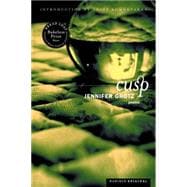
Note: Supplemental materials are not guaranteed with Rental or Used book purchases.
Purchase Benefits
What is included with this book?
| Foreword | p. ix |
| Between Two Road Signs in Northern Territory | p. 3 |
| The Floating World | p. 4 |
| The Last Living Castrato | p. 6 |
| Map to Light You Can Call Blue | p. 7 |
| Fish | p. 8 |
| Virginity | p. 10 |
| Glimpse | p. 11 |
| Ceramics | p. 12 |
| First Glasses | p. 14 |
| Alizarin Crimson | p. 16 |
| The Waves | p. 17 |
| Try | p. 21 |
| Le Bel Été | p. 22 |
| The Ladder | p. 23 |
| Not This Raw Fluttering | p. 24 |
| Lust | p. 25 |
| Last of the Imperials | p. 27 |
| Tarantismus | p. 28 |
| Unknown | p. 30 |
| Joshua Bell to His Violin | p. 31 |
| Kiss of Judas | p. 32 |
| Self-Portrait as a Drowned Man | p. 35 |
| Waiting to Wake Up Française | p. 37 |
| Dear John Bunyan | p. 39 |
| Jazz in Paris | p. 41 |
| Boulevard Slick with Rain | p. 43 |
| Arrival in Rome | p. 45 |
| The Train | p. 51 |
| Summary | p. 52 |
| Cusp | p. 53 |
| Self-Portrait as Annunciation | p. 54 |
| The Wolf | p. 56 |
| The Train, 2 | p. 57 |
| Mind of Winter | p. 58 |
| Inevitable | p. 59 |
| Elegy | p. 60 |
| Between Dog and Wolf | p. 62 |
| Table of Contents provided by Publisher. All Rights Reserved. |
The New copy of this book will include any supplemental materials advertised. Please check the title of the book to determine if it should include any access cards, study guides, lab manuals, CDs, etc.
The Used, Rental and eBook copies of this book are not guaranteed to include any supplemental materials. Typically, only the book itself is included. This is true even if the title states it includes any access cards, study guides, lab manuals, CDs, etc.
Excerpted from Cusp: Poems by Jennifer Grotz
All rights reserved by the original copyright owners. Excerpts are provided for display purposes only and may not be reproduced, reprinted or distributed without the written permission of the publisher.